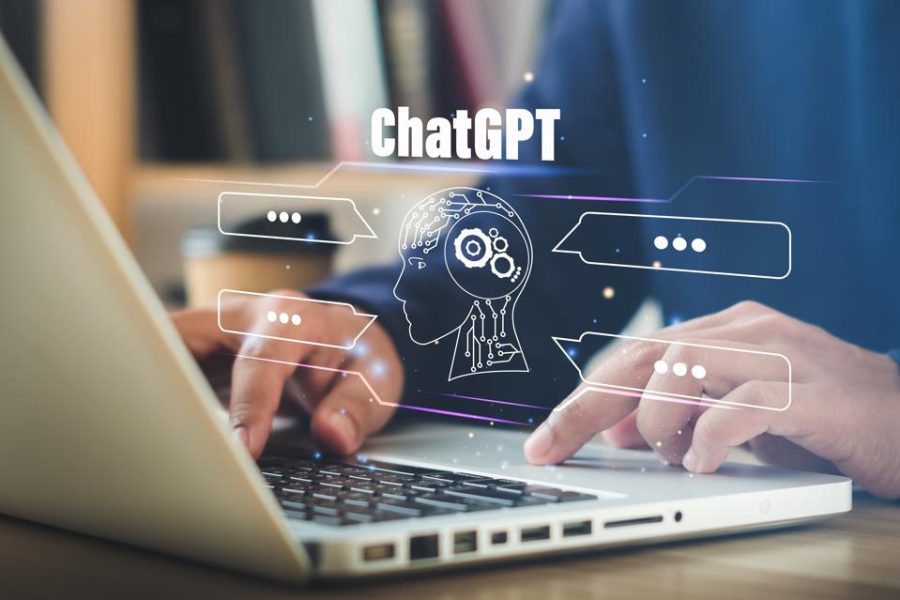AI and ChatGPT in education
March 4, 2023
ChatGPT is a free-to-use, public AI software that is more powerful than the world has ever seen. The application can do countless tasks, from emailing your boss, to answering complex chemistry equations, to writing a five-page essay. All you need to do is type a prompt into the chat bar, and in seconds, the AI spits out a perfect response.
The company behind the AI, OpenAI, describes the AI as a “new search engine” and was created to make the internet experience even more practical than before.
However, students of all ages, education levels, and skills have taken to AI to do their schoolwork for them. Here at Sandburg, the community faces the same concerns.
The application grew in popularity online around November. Students worldwide praised the app and delegated it for their writing needs. Many students admitted online that they use the application to write their final essays or help finish their projects in moments.
What about plagiarism checkers? Wouldn’t they detect text that the student doesn’t write? Nope, all of the writing on ChapGPT passes any online plagiarism checkers as authentic. However, Edward Tian, a 22-year-old computer science student at Princeton, created an app called “GPTZero.” The app can provide a probability that the student used AI, specifically ChatGPT, on the text. What’s the difference between a plagiarism checker and GPTZero? The plagiarism checker can only detect previously written text, while the AI detector works to find the repetitive patterns and similar wording that the AI writes in.
However, education with AI isn’t necessarily dishonest. Many students have used the application for good. The application can be a helpful tool, for example, for writing an important email and sounding professional, doing research for a project that requires specific information, summarizing lessons learned at school, and acting as a “tutor.”
Globally, teachers have voiced different opinions about the application. 73% of teachers agree that it can be a valuable tool in the classroom and is something to look forward to in the future. However, many have expressed adverse reactions to the application fearing that 100% of original work is not possible anymore. I asked two different Sandburg teachers about their thoughts on ChatGPT if they either supported or disagreed with its use in the classroom, and what this software could mean for education in the future.
A psychology teacher, Mr. Vuillaume, described, “I think there is a place for it as a tool to help teachers and students. There is always going to be a fear of ensuring student originality but that is not isolated to just the use of AI. Teachers can model appropriate use for students, for example, using AI to summarize complex material, helping to review math problems/equations that students don’t understand.”
Using the application as an accessible “tutor” for students seems to be a common consensus of teachers supporting AI. There could be a significant reduction in cheating if students could understand their lessons quickly.
On the other hand, an English teacher, Mrs. Mitchell, said, “What’s concerning about ChatGPT, although many believe it to be a useful technological tool, is that it removes the authenticity of interpersonal communication. In any exchange of ideas – an essay, an interview, a project, for example – ChatGPT superficially replaces the engagement between people and replaces it with a highly curated string of information that has been scoured from all areas of the internet or publishing world that seemingly answers the question or fits the assignment. Sadly, it functions as an imposter, serving to provide a human response or voice when the user of ChatGPT provides none of his or her own.“
What do you think? Can ChatGPT be used for good at school? Or is it discouraging originality and critical thinking? Or just another cheating tool students can use to get out of writing? As we progress into the future of technology, many questions still need to be answered. However, AI is not going anywhere, so we may need to embrace and encourage its use for good.



